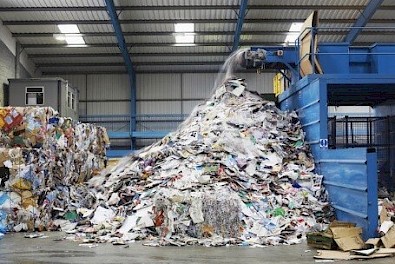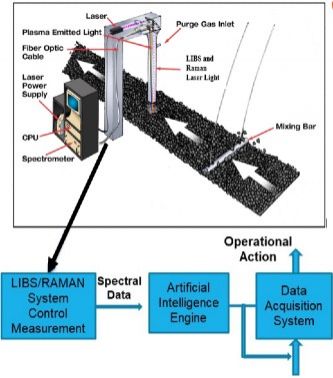AI to increase waste-to-energy production
 About 12% of the about 300 million tons of trash generated by Americans is converted into energy by waste-to-energy plants. Though recycling and composting have increased, the majority of the waste produced goes into landfills, the most inexpensive option. Researchers now aim to develop a new AI to make waste-to-energy plants a more attractive option by making it more effective and thus less cost intensive.
About 12% of the about 300 million tons of trash generated by Americans is converted into energy by waste-to-energy plants. Though recycling and composting have increased, the majority of the waste produced goes into landfills, the most inexpensive option. Researchers now aim to develop a new AI to make waste-to-energy plants a more attractive option by making it more effective and thus less cost intensive.
“The nature of municipal solid waste (MSW), a very heterogeneous material, with large variability in its physical, chemical and biological characteristics, poses significant challenges in optimizing MSW conversion processes.” says Carlos E. Romero, Principal Research Scientist and Director of the Energy Research Center at Lehigh University (ERC) (Bethlehem, Pennsylvania, U.S.) that has been awarded a new $3.5 million project by the U.S. Department of Energy (DOE) for the development of advanced technology for rapid detection and analysis of MSW streams. This project will be part of a $34 million effort from the Bioenergy Technology Office (BETO) of the Office of Energy Efficiency & Renewable Energy (EERE) to support high-impact research and development to improve and produce biofuels, biopower, and bioproducts. Lehigh will lead a team that includes the Energy Research Company (ERCo), Department of Energy’s (DOE’s) National Energy Technology Laboratory (NETL), ThermoChem Recovery International (TRI), Covanta Energy, the University of Toledo, and SpG Consulting.
 The team will work on streamlining one of the most complex aspects of the waste-to-bioenergy process: analysis of the material. The project will bring together two types of leading-edge spectroscopy, Laser Induced Breakdown Spectroscopy (LIBS) and Raman Spectroscopy, in combination with artificial intelligence (AI).
The team will work on streamlining one of the most complex aspects of the waste-to-bioenergy process: analysis of the material. The project will bring together two types of leading-edge spectroscopy, Laser Induced Breakdown Spectroscopy (LIBS) and Raman Spectroscopy, in combination with artificial intelligence (AI).
The technology the team is working on is designed to provide rapid, in-situ characterization of MSW feedstock, providing critical characterization and chemical analysis data in minutes for feed-forward process control of downstream biofuel production processes. The project includes the development of both hardware and software elements that, together, will be capable of improving MSW characterization throughput over baseline methods by at least 25%. The approach could make it possible to process waste material in minutes, instead of hours.
This project could lead to a process that is both easier and less costly, making waste-to-energy a more attractive alternative to the landfill, and moving the U.S. closer to a waste-processing approach that is sustainable. The proposed project supports BETO’s goal of innovation to accelerate feedstock technologies that would propel a bio-economy, by allowing real-time characterization of MSW feedstock for feed-forward process control of downstream biofuel production processes.
You can return to the main Market News page, or press the Back button on your browser.

